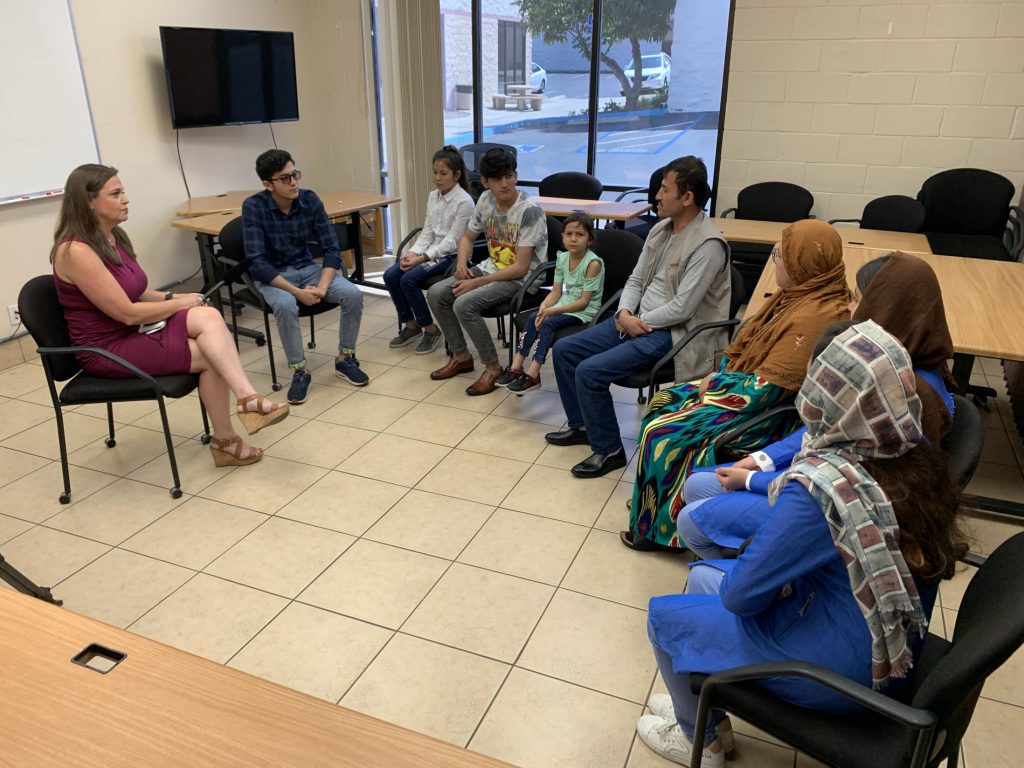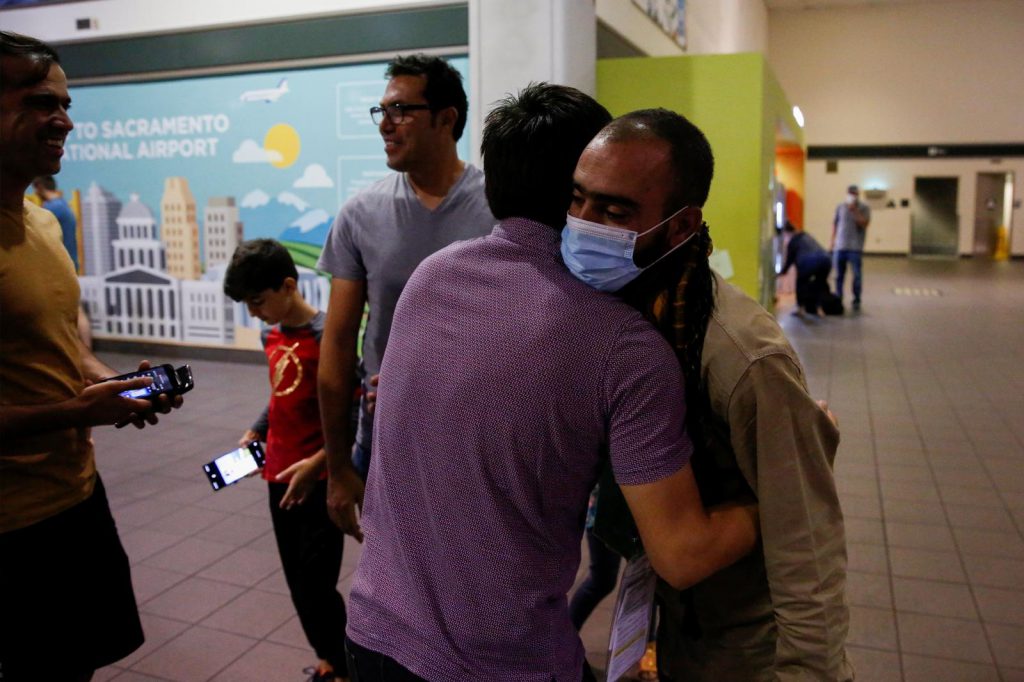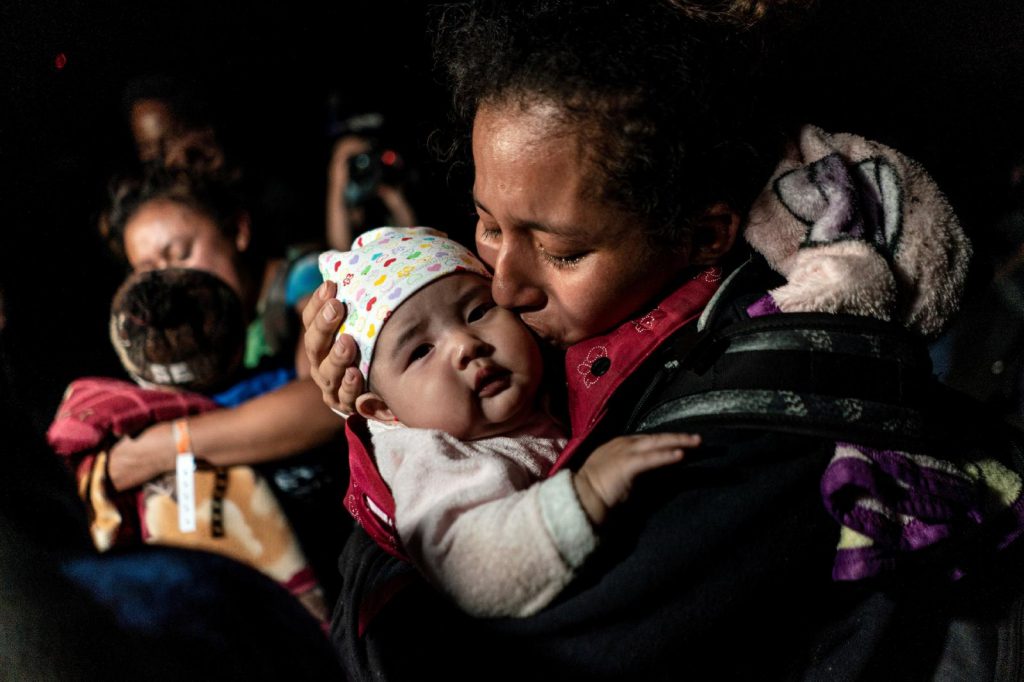WASHINGTON — In a politically polarized society, it’s hard for opposites to agree on something, but in the case of the collapse of Afghanistan so soon after U.S. forces pulled out of the country, there’s agreement. It’s a disaster — but for different reasons.
“It’s insane, to say the least,” said David Crum, national commander of the Catholic War Veterans and Auxiliary of the United States of America, in an Aug. 17 phone interview with Catholic News Service from his home in Bellerose, New York.
“I think it’s a scandal, as far as it goes. They put that much time and investment for 20 years, we have people that came back without limbs or anything else,” said Crum, a Coast Guard veteran who served in 1968 in Vietnam. “Obviously, we didn’t learn the lesson from that.”
Crum — who had news coverage of the Taliban’s takeover of Afghanistan in the background during the interview — added: “I’m not saying that we wanted to keep troops there, but I think it’s just shameful the way the president (Joe Biden) let it happen — especially when his advisers advised him exactly against what he did.”
The parallels between Afghanistan and Vietnam, which fell to the North Vietnamese in 1975 after the United States withdrew combat forces in 1973, are “spot on,” Crum said.
In agreement with Crum, albeit with another perspective, is Jesuit Father John Dear, who now leads a retreat center on the California coast.
“I think the United States has to get out of Afghanistan, I totally support that and always have,” Father Dear told CNS in a separate Aug. 17 phone interview. “It’s been a total failure. We spent $2 trillion, over 2,300 Americans were killed. I don’t know how many hundred thousand Afghanis were killed. It was an excuse for 9/11. Bin Laden was never there.”
Father Dear visited Afghanistan seven years ago. He said he “spent time in Kabul and spent days listening to kids tell me about their relatives who’d been blown up by our drones. And they were saying none of these people had anything to do with the Taliban, they were ordinary civilians. It was just so evil. I know that nothing good can come from invading Afghanistan. The Russians tried it and failed.”
The Soviet Union invaded Afghanistan in the late 1970s but ultimately retreated in an operation then called “Russia’s Vietnam.”
“It’s a tragedy,” Father Dear said of the current collapse of Afghanistan. “It makes me think all over again that we should spend this $2 trillion in feeding people and housing people and getting medicine to people and getting to the roots of war and teaching nonviolent conflict resolution.”
Father Dear criticized the U.S. Catholic bishops. He said they “voted way unanimously in favor” of the bombing of Afghanistan in November 2001 in the wake of the 9/11 terror attacks in the United States two months before. “I remember telling that to (Jesuit priest and fellow peace activist) Daniel Berrigan that night, and he wept.”
At their fall 2001 fall general assembly, the bishops took that action in adopting a wide-ranging pastoral message, “Living With Faith and Hope After Sept. 11.”
The U.S. invaded Afghanistan in late 2001 in a bid to dismantle al-Qaida and force the Taliban from power, after nearly 3,000 people died in the 9/11 terrorist attacks on U.S. soil.
The Catholic bishops said use of force to root out terrorism was “legitimate,” but they warned: “Every military response must be in accord with sound moral principles, notably such norms … as noncombatant immunity, proportionality, right intention and probability of success.”
Their pastoral message also addressed the wider context of conflict in the world, including Sudan, the Middle East and Iraq, where it condemned the continuing economic embargo.
Across the Atlantic, Sarah Teather, director of Jesuit Refugee Service UK said in an Aug. 16 statement the British government needed to protect those now fleeing Afghanistan.
Teather called on England to “act now to provide safety to asylum-seekers already in the U.K. and to guarantee safety for those who will arrive in coming weeks and months. The government must urgently abandon attempts to penalize refugees for how they are able to travel to seek safety, and for asylum-seekers who are already here, it must recognize the terrible change in circumstances in Afghanistan and grant them immediate humanitarian protection, at the very least.”
Similar concerns for asylum-seekers were expressed in the United States.
“There are still roughly 80,000 Afghan Special Immigrant Visa holders and their families in grave danger — not to mention the tens of thousands in other vulnerable populations, including journalists, women’s rights activists, NGO workers, and others,” said an Aug. 16 statement by Krish O’Mara Vignarajah, president and CEO of Lutheran Immigration and Refugee Service.
“To frame the perspectives on U.S. withdrawal as either ‘stay in a forever war’ or ‘save our allies’ is a false dichotomy. We are simply calling on the administration to keep our promise. Our allies protected us, and in turn, we vowed to protect them,” Vignarajah said. “We call upon President Biden to immediately evacuate all U.S. citizens, American-affiliated Afghans, and other vulnerable populations.”






